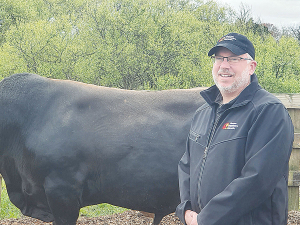Farming in the high tropics
Waikato farm development organisation Dairy Solutionz (NZ) Ltd is set to open Corpoica, the company's first demonstration dairy farm in the high tropics.
 Tropical Dairy Group chair Tim Heeley says New Zealanders have a great opportunity to invest in a world-first genetic solution.
Tropical Dairy Group chair Tim Heeley says New Zealanders have a great opportunity to invest in a world-first genetic solution.
New Zealand dairy genetics company Tropical Dairy Group Limited (TDG) is trying to raise $3 million from investors.
TDG is the holding company and 100% owner of both Thermo Regulatory Genetics Limited and Dairy Solutionz (NZ) Limited, founded in 2018 and 2009 respectively.
The Ohaupo-based company started breeding tropical dairy genetics in 2008, and has fourteen private investors - many of them New Zealand dairy farmers.
Now, TDG invites wholesale investors to come aboard, allowing access through a nominee investment vehicle with a minimum investment amount of $10,000.
The private fund raising offer is being hosted by Catalist - a new stock exchange designed for small to medium enterprises (SMEs).
The raise comes ahead of an intended public listing in early 2022 on the Catalist Public Market.
Focused on developing heat-tolerant cattle in tropical climates, TDG's genetics are sold into markets throughout Asia, the US and South America, said to improve animal welfare and help people in the world's hot-test areas boost food and protein security.
Chair Tim Heeley says this is a great opportunity for New Zealanders to invest in a world-first genetic solution, originating from the Waikato.
"TDG is a technology-driven, growth business. Being a pioneering genetics company with a global perspective, coupled with a presence anchored in New Zealand, makes us a unique investment opportunity," he says.
"We are predicting good interest from dairy farmers as well as the wider New Zealand ag community.
"The investment should also appeal to people looking to fund solutions to global food insecurity issues linked to climate change."
Colin Magee, Catalist's chief executive says he is delighted to welcome Tropical Dairy Group to the exchange.
"It's great to see TDG's taking the next step in their growth journey by listing on a Catalist Private Market and we're pleased we can help facilitate both capital raising and generating liquidity for their investors," he says.
"We hope this initial offer will help with their goal of a public listing on our licensed stock exchange early next year - it'd mean anyone in New Zealand, not just wholesale investors, could buy shares in this unique investment opportunity."
Slick Gene
TDG announced earlier this year it has bred the world's first team of Jersey bulls that all carry the dominant "Slick" gene - meaning daughters of these bulls are certain to exhibit heat tolerant traits.
Cows with the Slick gene cope better in tropical climates, mitigating heat stress and improving milk production for countries with some of the world's greatest deficits of protein.
To date, the Slick gene has been bred into Holsteins, Crossbreeds and Jerseys, leading to the TDG herd said to be the largest and most diverse slick-breeding herd in the world.
Following TDG's planned 2022 public offering, investors will have the opportunity to trade TDG's shares every six months in a secondary market on the Catalist exchange.
Could a breakthrough in fermentation create a new multi-million-dollar export market for shiitake mushroom extracts into China?
Meadow Fresh has created the world's first fantasy sports league powered by real cows.
This year, 'Foodie February' sees potatoes take the spotlight as one of New Zealand's most powerful and versatile food heroes.
A multi-cultural team is helping to establish one of New Zealand's largest plantings of premium eating grapes - while learning each other's languages and cultures along the way.
The World Wide Sires National All Day Breeds Best Youth Camp Best All Rounder plaudit has become family affair, with 2026 Paramount Cup winner Holly Williams following in her sister Zara's footsteps.
DairyNZ is giving New Zealand farmers a unique opportunity to gain hands-on governance and leadership experience within the dairy sector.
OPINION: Fonterra may be on the verge of selling its consumer business in New Zealand, but the co-operative is not…
OPINION: What does the birth rate in China have to do with stock trading? Just ask a2 Milk Company.